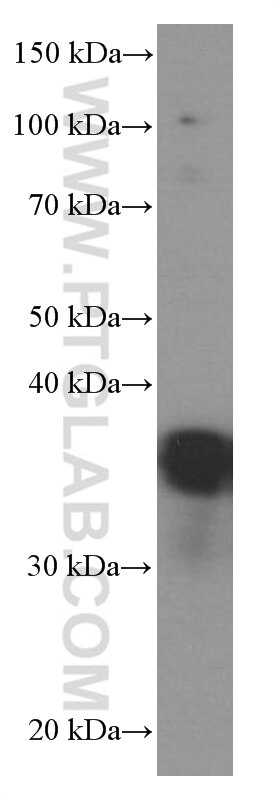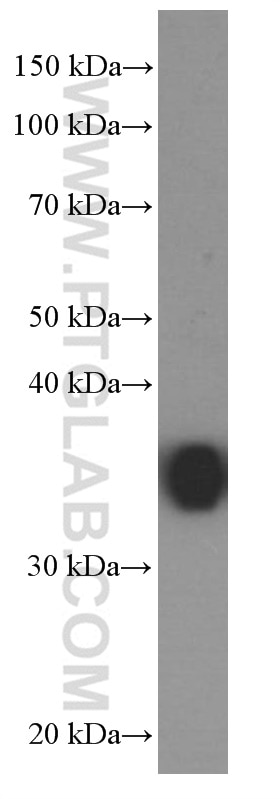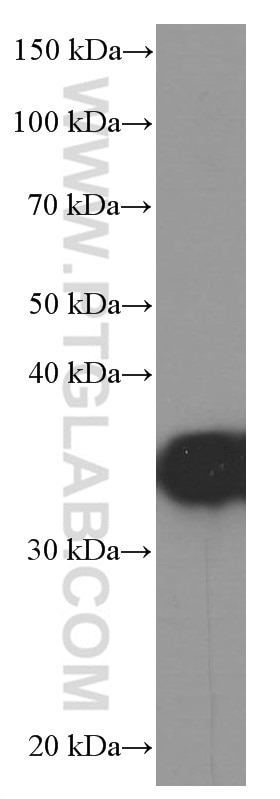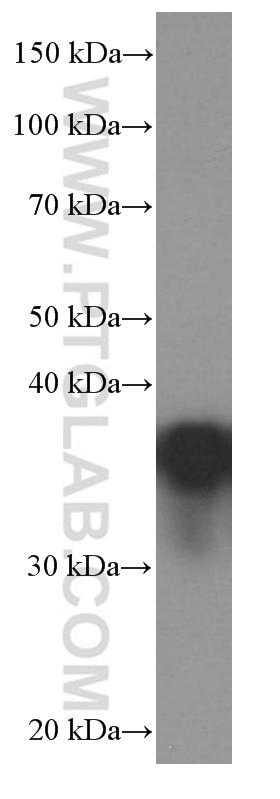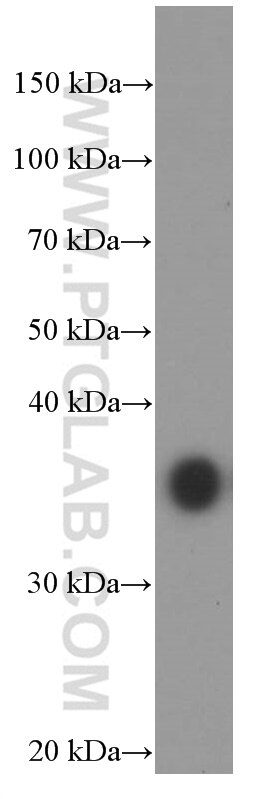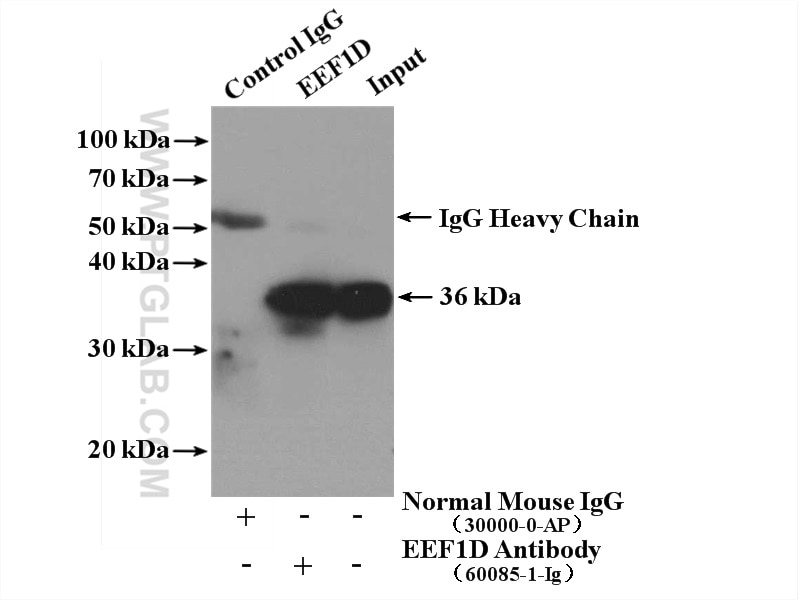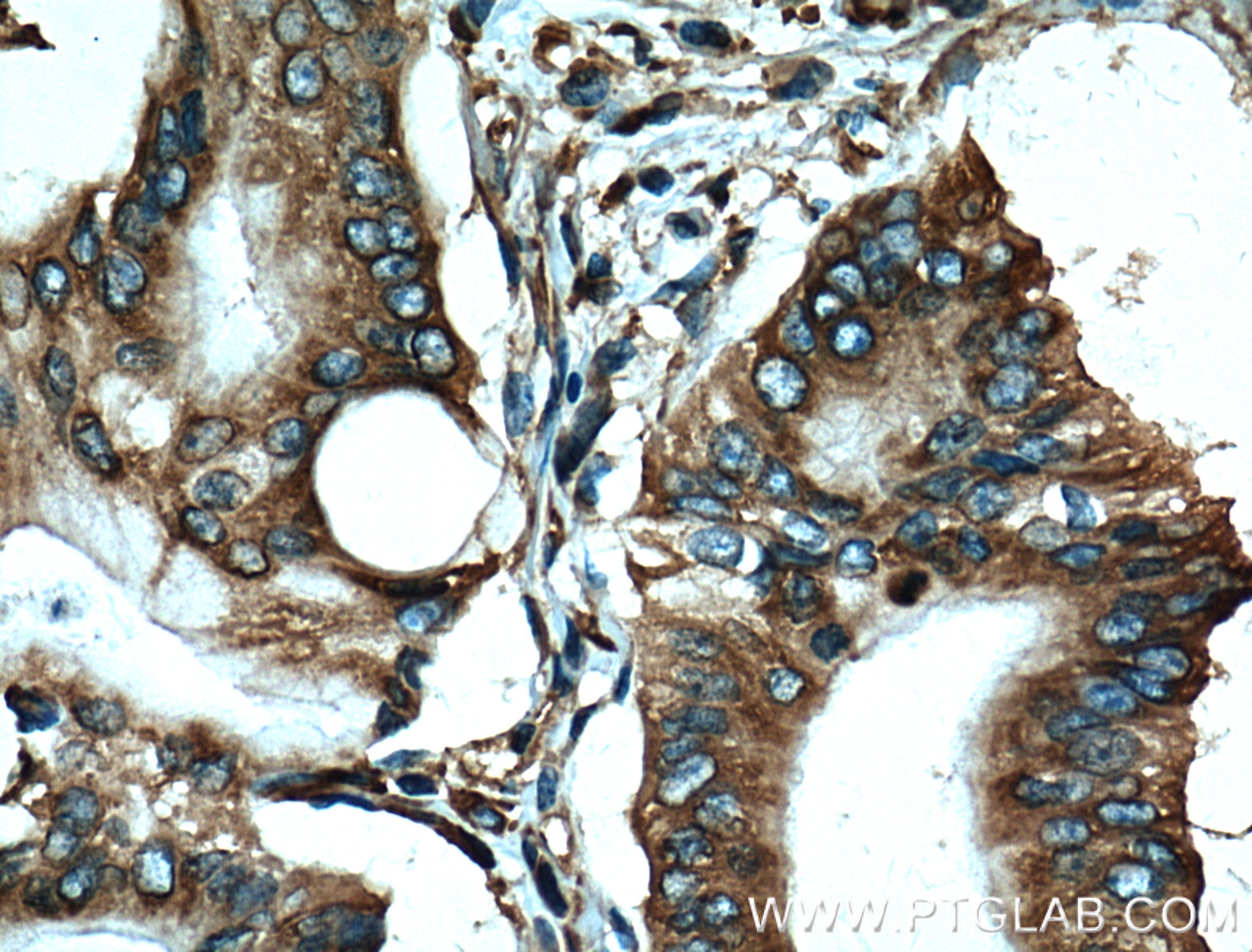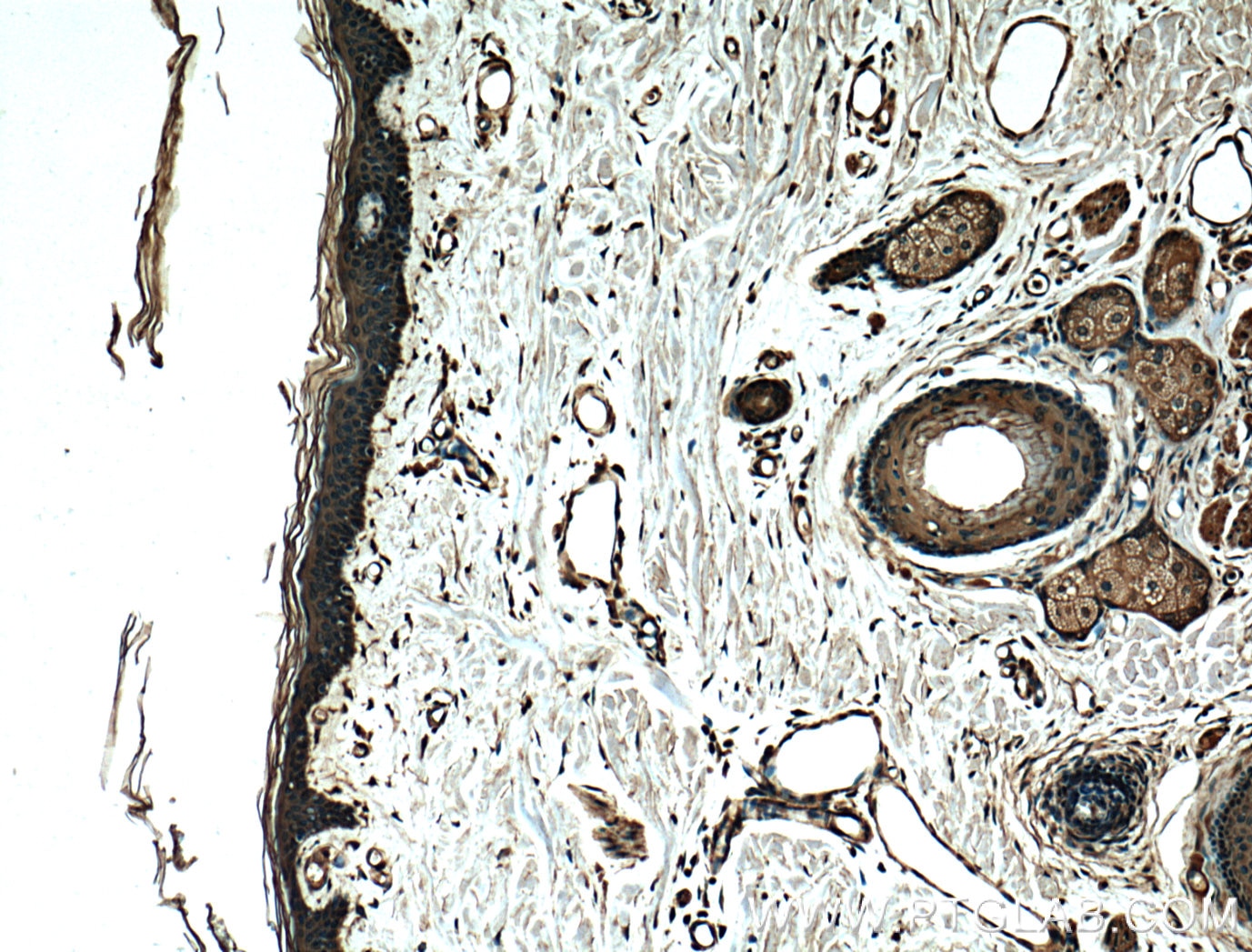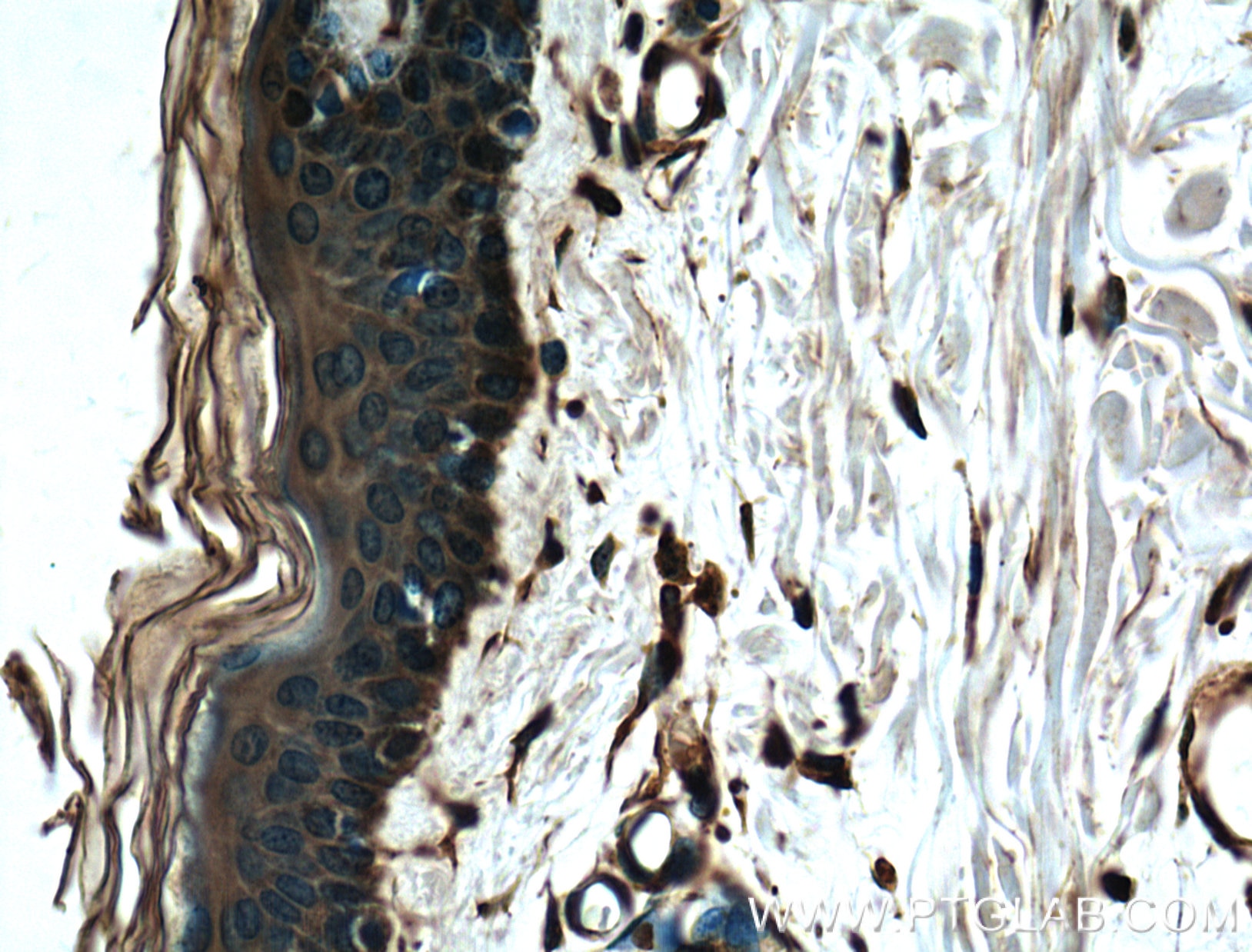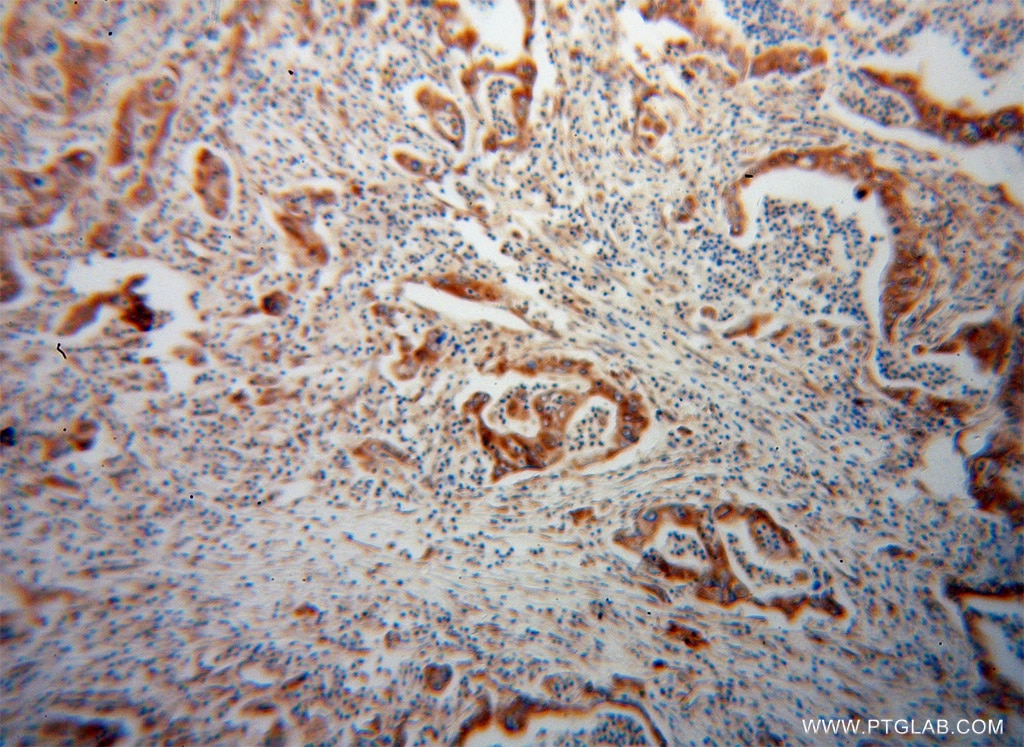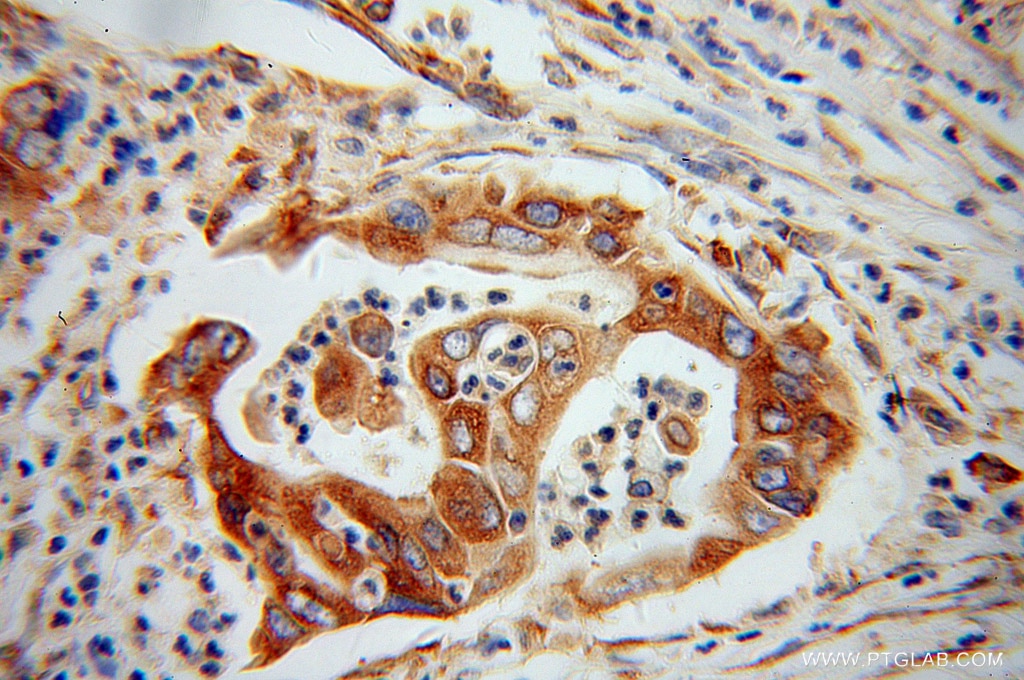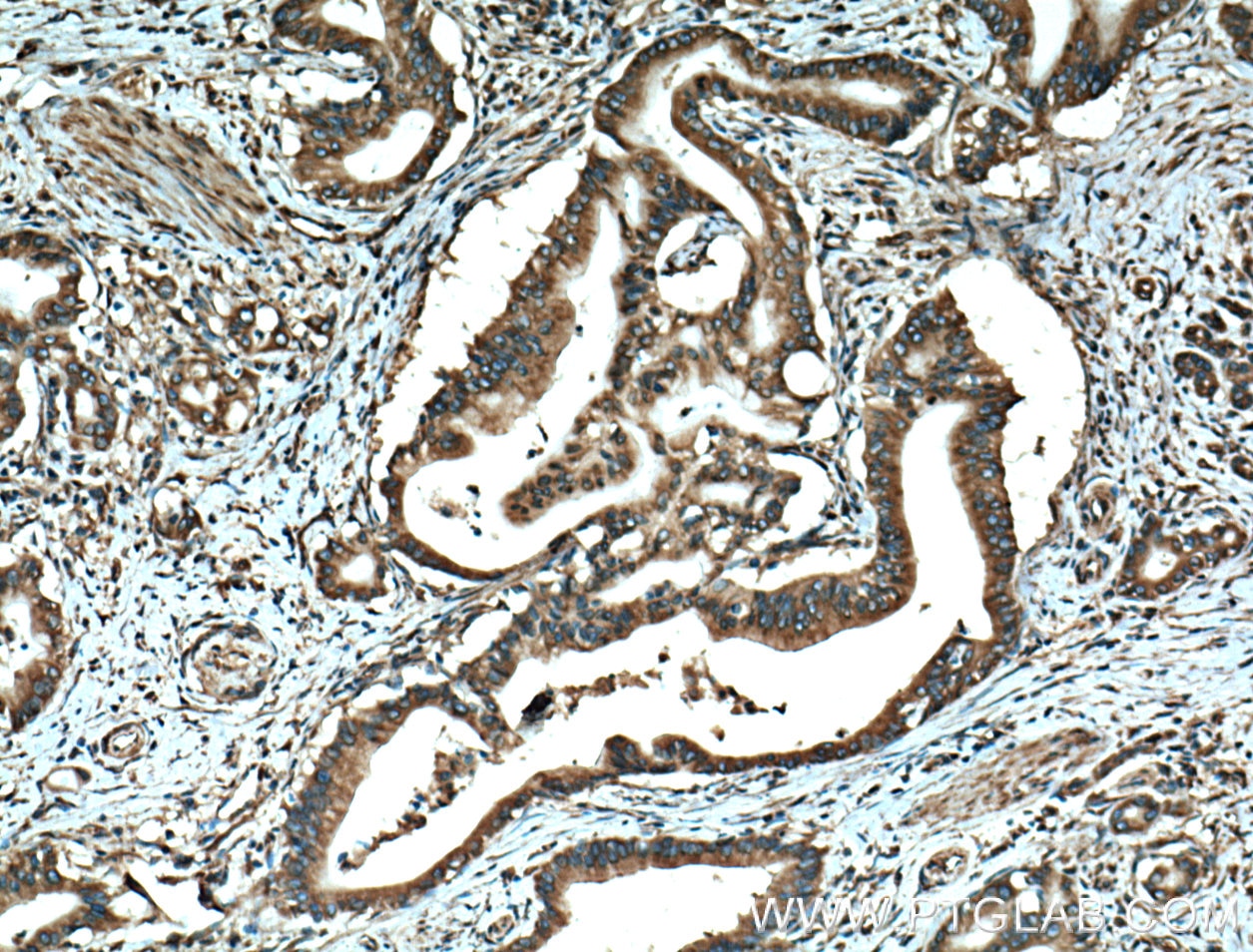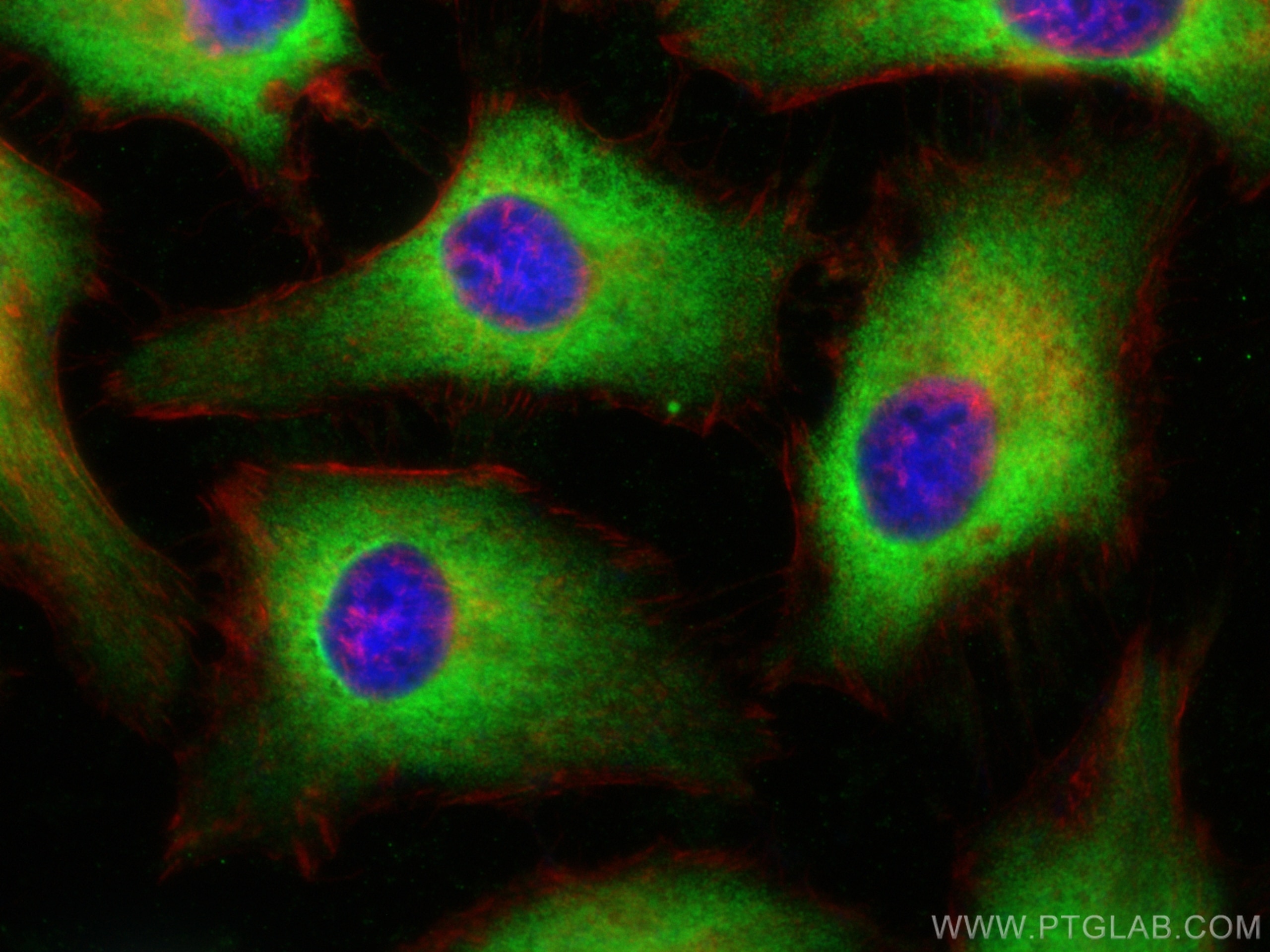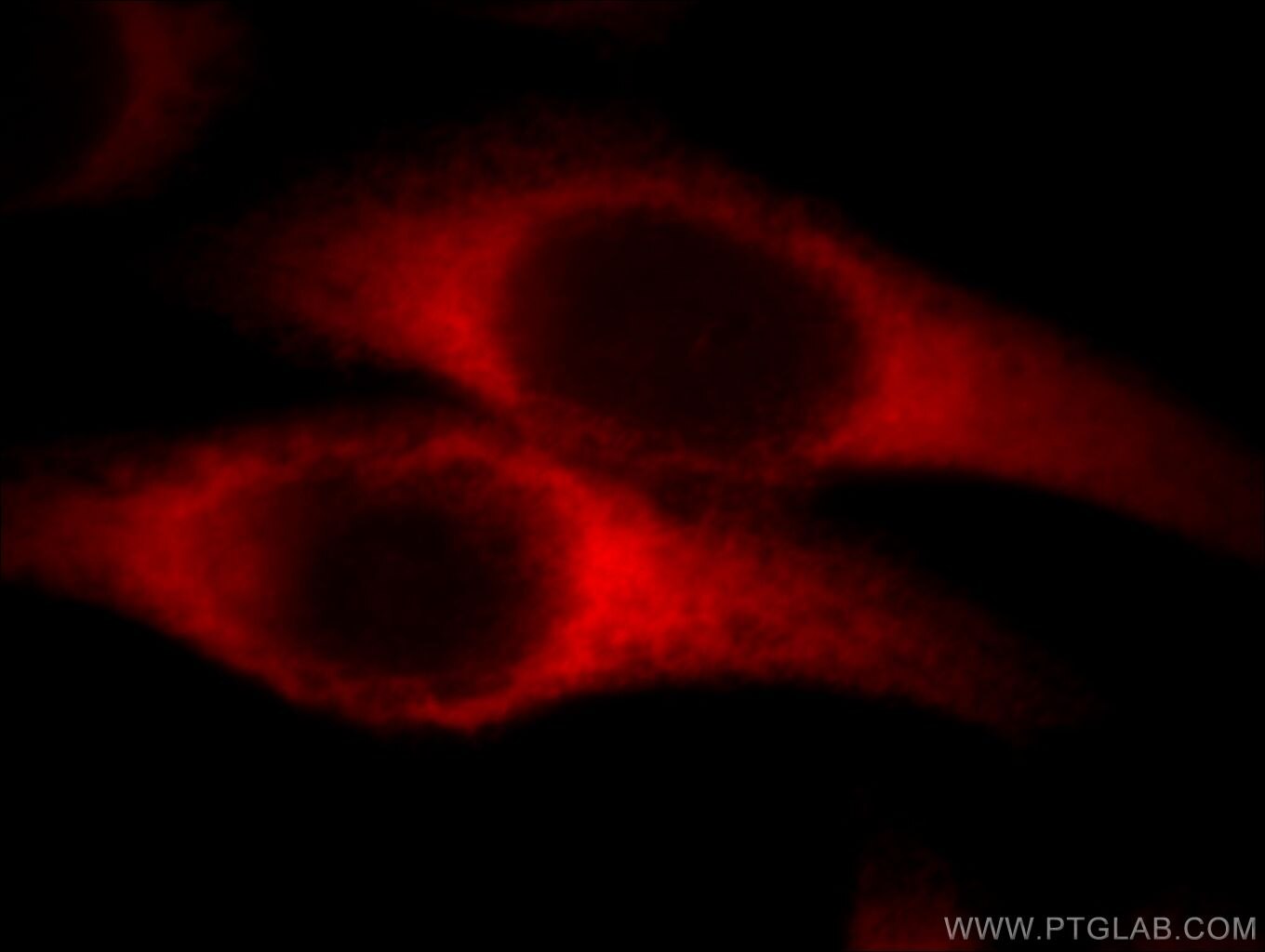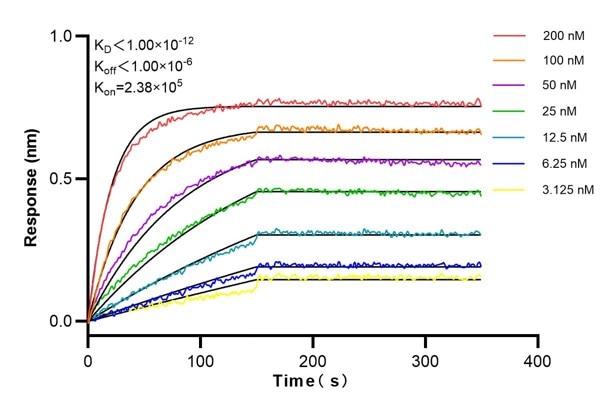- Featured Product
- KD/KO Validated
EEF1D Monoklonaler Antikörper
EEF1D Monoklonal Antikörper für WB, IHC, IF/ICC, IP, ELISA
Wirt / Isotyp
Maus / IgG1
Getestete Reaktivität
human, Maus, Ratte
Anwendung
WB, IHC, IF/ICC, IP, ELISA
Konjugation
Unkonjugiert
CloneNo.
3B1B11
Kat-Nr. : 60085-1-Ig
Synonyme
Geprüfte Anwendungen
| Erfolgreiche Detektion in WB | Jurkat-Zellen, HeLa-Zellen, MCF-7-Zellen, NIH/3T3-Zellen, RAW 264.7-Zellen |
| Erfolgreiche IP | MCF-7-Zellen |
| Erfolgreiche Detektion in IHC | humanes Pankreaskarzinomgewebe, humanes Hautgewebe Hinweis: Antigendemaskierung mit TE-Puffer pH 9,0 empfohlen. (*) Wahlweise kann die Antigendemaskierung auch mit Citratpuffer pH 6,0 erfolgen. |
| Erfolgreiche Detektion in IF/ICC | HeLa-Zellen |
Empfohlene Verdünnung
| Anwendung | Verdünnung |
|---|---|
| Western Blot (WB) | WB : 1:500-1:2000 |
| Immunpräzipitation (IP) | IP : 0.5-4.0 ug for 1.0-3.0 mg of total protein lysate |
| Immunhistochemie (IHC) | IHC : 1:50-1:500 |
| Immunfluoreszenz (IF)/ICC | IF/ICC : 1:400-1:1600 |
| It is recommended that this reagent should be titrated in each testing system to obtain optimal results. | |
| Sample-dependent, check data in validation data gallery | |
Veröffentlichte Anwendungen
| KD/KO | See 1 publications below |
| WB | See 4 publications below |
| IF | See 1 publications below |
| IP | See 1 publications below |
Produktinformation
60085-1-Ig bindet in WB, IHC, IF/ICC, IP, ELISA EEF1D und zeigt Reaktivität mit human, Maus, Ratten
| Getestete Reaktivität | human, Maus, Ratte |
| In Publikationen genannte Reaktivität | human, Maus |
| Wirt / Isotyp | Maus / IgG1 |
| Klonalität | Monoklonal |
| Typ | Antikörper |
| Immunogen | EEF1D fusion protein Ag0983 |
| Vollständiger Name | eukaryotic translation elongation factor 1 delta (guanine nucleotide exchange protein) |
| Berechnetes Molekulargewicht | 31 kDa |
| Beobachtetes Molekulargewicht | 35-40 kDa |
| GenBank-Zugangsnummer | BC007847 |
| Gene symbol | EEF1D |
| Gene ID (NCBI) | 1936 |
| Konjugation | Unkonjugiert |
| Form | Liquid |
| Reinigungsmethode | Protein-G-Reinigung |
| Lagerungspuffer | PBS with 0.02% sodium azide and 50% glycerol |
| Lagerungsbedingungen | Bei -20°C lagern. Nach dem Versand ein Jahr lang stabil Aliquotieren ist bei -20oC Lagerung nicht notwendig. 20ul Größen enthalten 0,1% BSA. |
Hintergrundinformationen
EEF1D, also named as EF1D and EF 1 delta, belongs to the EF-1-beta/EF-1-delta family. It is a subunit of the elongation factor-1 complex, which is responsible for the enzymatic delivery of aminoacyl tRNAs to the ribosome. EF-1-beta and EF-1-delta stimulate the exchange of GDP bound to EF-1-alpha to GTP. EEF1D is phosphorylated upon DNA damage, probably by ATM or ATR. The calculated molecular weight of EEF1D is a 31 kDa, but the modified protein is about 35-40 kDa. ( PMID: 21936567 )
Protokolle
| PRODUKTSPEZIFISCHE PROTOKOLLE | |
|---|---|
| WB protocol for EEF1D antibody 60085-1-Ig | Protokoll herunterladen |
| IHC protocol for EEF1D antibody 60085-1-Ig | Protokoll herunterladenl |
| IF protocol for EEF1D antibody 60085-1-Ig | Protokoll herunterladen |
| IP protocol for EEF1D antibody 60085-1-Ig | Protokoll herunterladen |
| STANDARD-PROTOKOLLE | |
|---|---|
| Klicken Sie hier, um unsere Standardprotokolle anzuzeigen |
Publikationen
| Species | Application | Title |
|---|---|---|
Cell Chem Biol A photoaffinity labeling strategy identified EF1A1 as a binding protein of cyclic dinucleotide 2'3'-cGAMP. | ||
Free Radic Biol Med Proteomic analysis of the glutathione-deficient LEGSKO mouse lens reveals activation of EMT signaling, loss of lens specific markers, and changes in stress response proteins. | ||
Front Microbiol Strain-Specific Contribution of Eukaryotic Elongation Factor 1 Gamma to the Translation of Influenza A Virus Proteins. | ||
J Virol Eukaryotic translation elongation factor 1 delta inhibits the nuclear import of nucleoprotein and PA-PB1 heterodimer of influenza A virus.
| ||
STAR Protoc Protocol for identification and validation of 2'3'-cGAMP-binding proteins by photoaffinity probes. | ||
BMC Biol Foxg1 regulates translation of neocortical neuronal genes, including the main NMDA receptor subunit gene, Grin1 |
